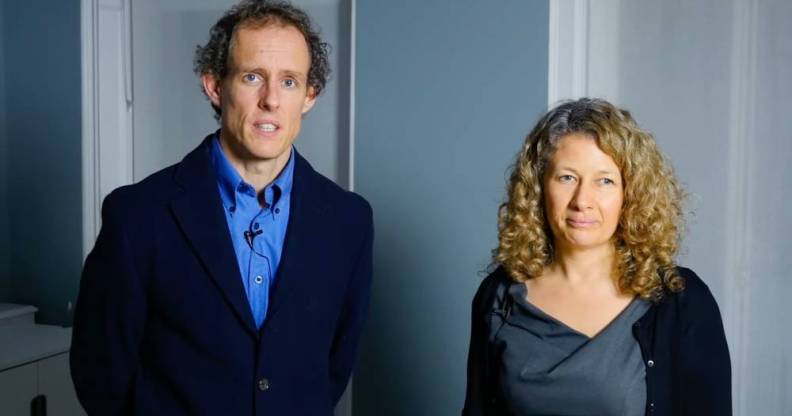High Court to hear anti-trans Christian parents’ challenge against primary schools

Nigel and Sally Rowe, parents from the Isle of Wight, have won permission for a judicial review of trans-affirming policies in primary schools. (YouTube/Christian Concern)
A High Court judge has granted a request for a judicial review of trans-affirming policies in English primary schools filed by two Christian parents.
Nigel and Sally Rowe first made headlines in 2017 when they pulled their then six-year-old son from a Church of England Primary school on the Isle of Wight because he had a gender-diverse child in his class.
Four years later, in October 2021, they announced they were taking legal action against the Department of Education (DfE).
The Rowes, who are supported by the Christian Legal Centre, have now been given permission for a judicial review, it was announced Monday (14 February). Their case will likely be heard in the next three months.
In a video published by Christian Concern, Nigel claimed it was a “landmark” case as “many parents” in the UK worry about the “trans issue being pushed on young primary school children”.
He offered nothing to back up this claim. On the contrary, a report by the Equalities and Human Rights Commission in 2020 found there is overwhelming support among Britons for trans people in schools.
Analysing data from the 2019 British Social Attitudes survey, the EHRC reported that 75 per cent approved of trans people teaching in primary schools.
Indeed, time and again research has shown that Britain is accepting of trans people, despite the ongoing anti-trans narrative being pushed in mainstream media, by lawmakers and even, lately, by the EHRC.
A 2020 YouGov poll on behalf of PinkNews revealed that 50 per cent of the Brits surveyed supported trans people’s right to self-identify, compared with just 27 per cent who said they opposed. Just 23 per cent of respondents said they did not know how they felt about trans people being able to self-identify.
In November, independent research released by Just Like Us, the LGBT+ young people’s charity in the UK, found almost all young people (84 per cent) surveyed would support a friend if they came out as trans.
The research, which surveyed 2,934 secondary school pupils across 375 schools and colleges in the UK, found that over half (57 per cent) of kids said they already had a friend who is trans.
Nigel and Sally Rowe have been telling their child’s story since 2017
Nigel and Sally Rowe claimed in 2017 that their child was “confused as to why a boy was now a girl” when their classmate would switch between traditionally “masculine” and “feminine” clothes.
But, instead of talking to their child about gender identity and gender expression, the Rowes decided to take him out of primary school and homeschool him instead.
They had previously taken their older son out of the same school after a classmate came out as a trans girl. The Rowes alleged their child was confused “to the point of being unwell and stressed”.
They objected to their local authority’s adoption of the Cornwall Schools Transgender Guidance, which aims to empower and support trans pupils.
The guidance states that it’s “extremely important” to ensure that the “correct gender, name and pronouns are used to uniformly address trans people”. It also says that trans students should be “able to wear the uniform of their true gender” and that gender-neutral toilets should be available.
Nigel Rowe told The Times last year: “We believe it is wrong to encourage very young children to embrace transgenderism.
“Boys are boys and girls are girls… We took this action with heavy hearts, but having seen how this issue has escalated, we feel vindicated and believe the government must be challenged.”
The Rowes sought the judicial review because they claimed that there had been a “failure” by ministers to challenge the guidance because the DfE did not intervene in their case.

